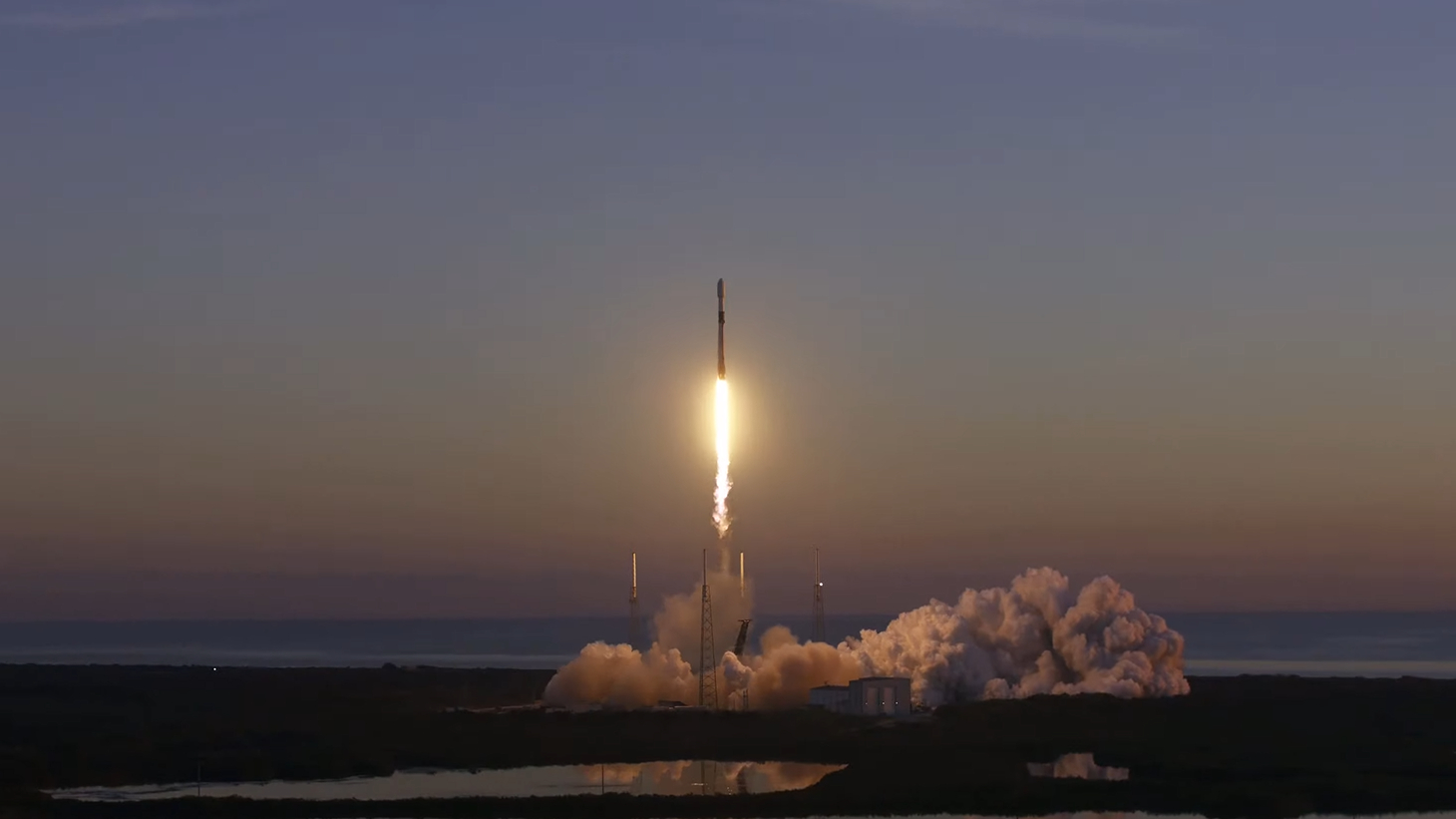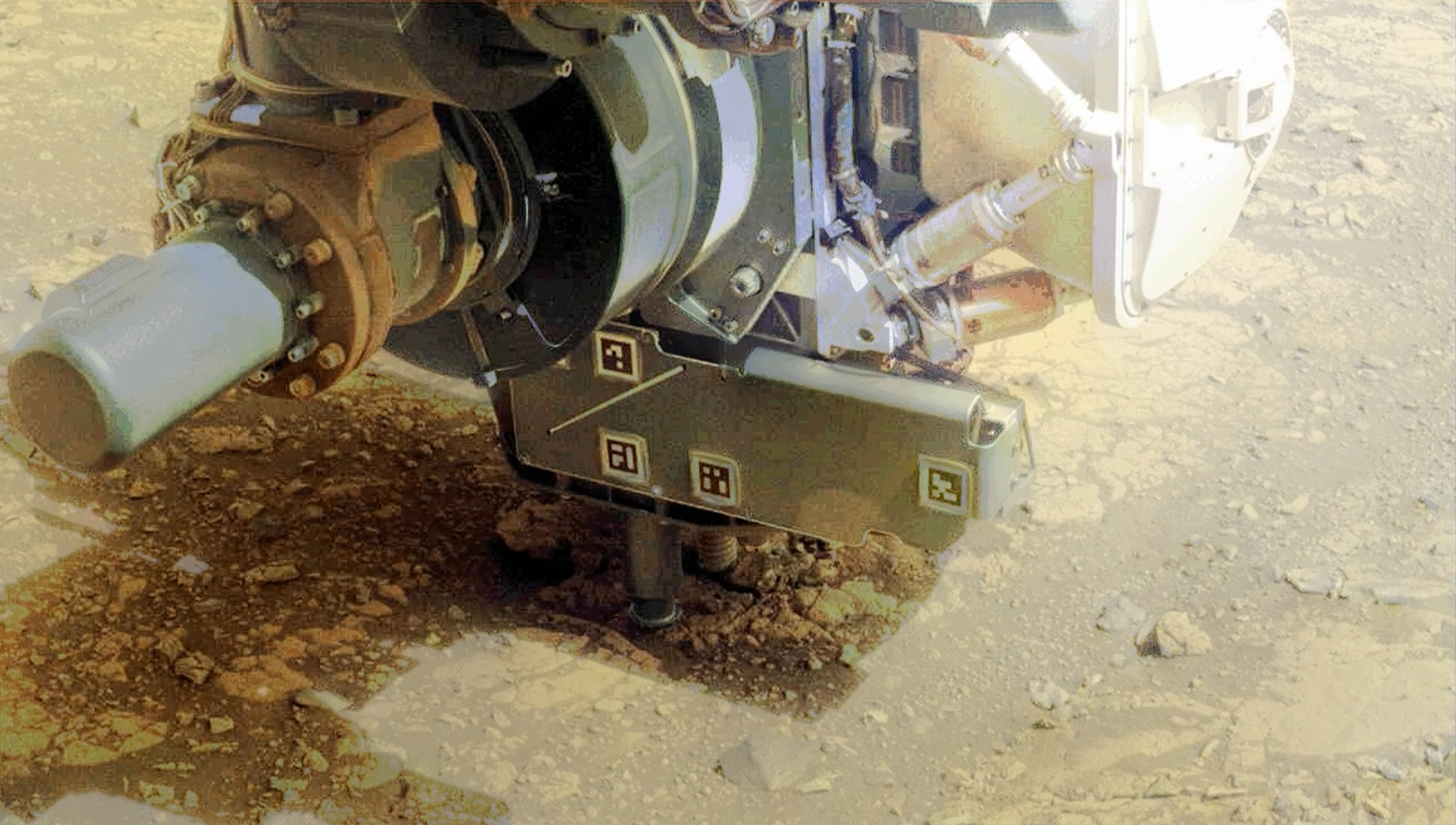SpaceX launches advanced GPS satellite for US Space Force, nails the landing
The rocket blasted off at 7:24 a.m. EST.
That's four launches already for SpaceX this year.
SpaceX's Falcon 9 rocket lifted off from Cape Canaveral Space Force Station in Florida on Wednesday (Jan. 18) at 7:24 a.m. EST (1224 GMT) with a new navigation satellite of the U.S. GPS constellation aboard.
The launch of the Global Positioning Satellite used a refurbished Falcon 9 first-stage booster, which previously propelled to the International Space Station Crew 5 astronauts Nicole Mann and Josh Cassada of NASA, Japanese mission specialist Koichi Wakata and Russia's Anna Kikina.
The first stage successfully separated from the payload-carrying upper stage about 2 minutes and 40 seconds after clearing the launch pad at Space Launch Complex 40 at Cape, and safely descended back to Earth, landing on SpaceX's drone ship called 'A Shortfall of Gravitas' about 8 minutes and 40 seconds after lift-off.
Related: 8 ways SpaceX has transformed spaceflight forever

SpaceX said in the launch livestream that the fairing, which protected the payload during the first phase of the rocket's ascend, will be recovered from the Atlantic Ocean for possible future reuse.
The GPS III Space Vehicle 06, an advanced satellite, continued to orbit after the first stage and fairing separation atop Falcon 9's upper stage. The upper stage delivered the payload into an altitude of about 2,670 miles (4,300 kilometers) above Earth's surface where it released the satellite about 1 hour and 30 minutes after lift-off.
Breaking space news, the latest updates on rocket launches, skywatching events and more!
The satellite, named Amelia Earhart after the famous female aviator and first woman to successfully fly across the Atlantic Ocean, will now continue on its own to its operational orbit 12,500 miles (20,200 km) above our planet.
Amelia Earhart is the sixth of the GPS III series; the last one, named after Neil Armstrong, launched in June 2021. The satellite, owned and operated by the U.S. Space Force, is part of a larger push to modernize the nation's GPS fleet. The new satellite has an expected lifetime of 15 years and will eventually form part of a set of 32 next-generation satellites, according to its maker, Lockheed Martin.
The latest generation of GPS spacecraft has up to three times better accuracy, eight times improvement in anti-jamming systems and a new modular design for adaptations "to better address changing mission needs and emerging threats," Lockheed Martin stated.
The company says that approximately half the world's population (or four billion users) relies on GPS technology for everything from transportation to precise agriculture monitoring to utility infrastructure (some of which uses GPS in part to pinpoint service areas).
The U.S. GPS network is not the only set of navigation satellites available, however. The European Union has an independent set known as Galileo, Russia has GLONASS, and China has a system called Beidou. Independence of GPS systems is often raised as an important matter of national sovereignty and security, especially in the wake of Russia's invasion of Ukraine in February 2022.
Elizabeth Howell is the co-author of "Why Am I Taller?" (ECW Press, 2022; with Canadian astronaut Dave Williams), a book about space medicine. Follow her on Twitter @howellspace. Follow us on Twitter @Spacedotcom or Facebook.
Join our Space Forums to keep talking space on the latest missions, night sky and more! And if you have a news tip, correction or comment, let us know at: community@space.com.

Elizabeth Howell (she/her), Ph.D., was a staff writer in the spaceflight channel between 2022 and 2024 specializing in Canadian space news. She was contributing writer for Space.com for 10 years from 2012 to 2024. Elizabeth's reporting includes multiple exclusives with the White House, leading world coverage about a lost-and-found space tomato on the International Space Station, witnessing five human spaceflight launches on two continents, flying parabolic, working inside a spacesuit, and participating in a simulated Mars mission. Her latest book, "Why Am I Taller?" (ECW Press, 2022) is co-written with astronaut Dave Williams.
